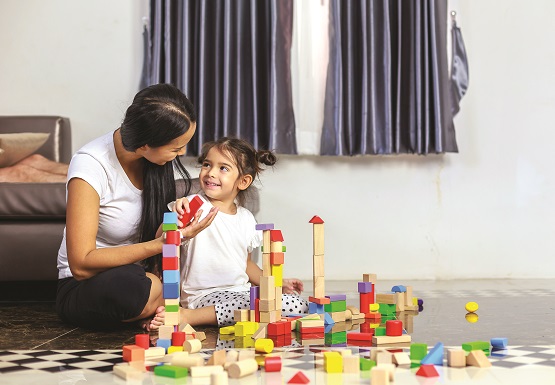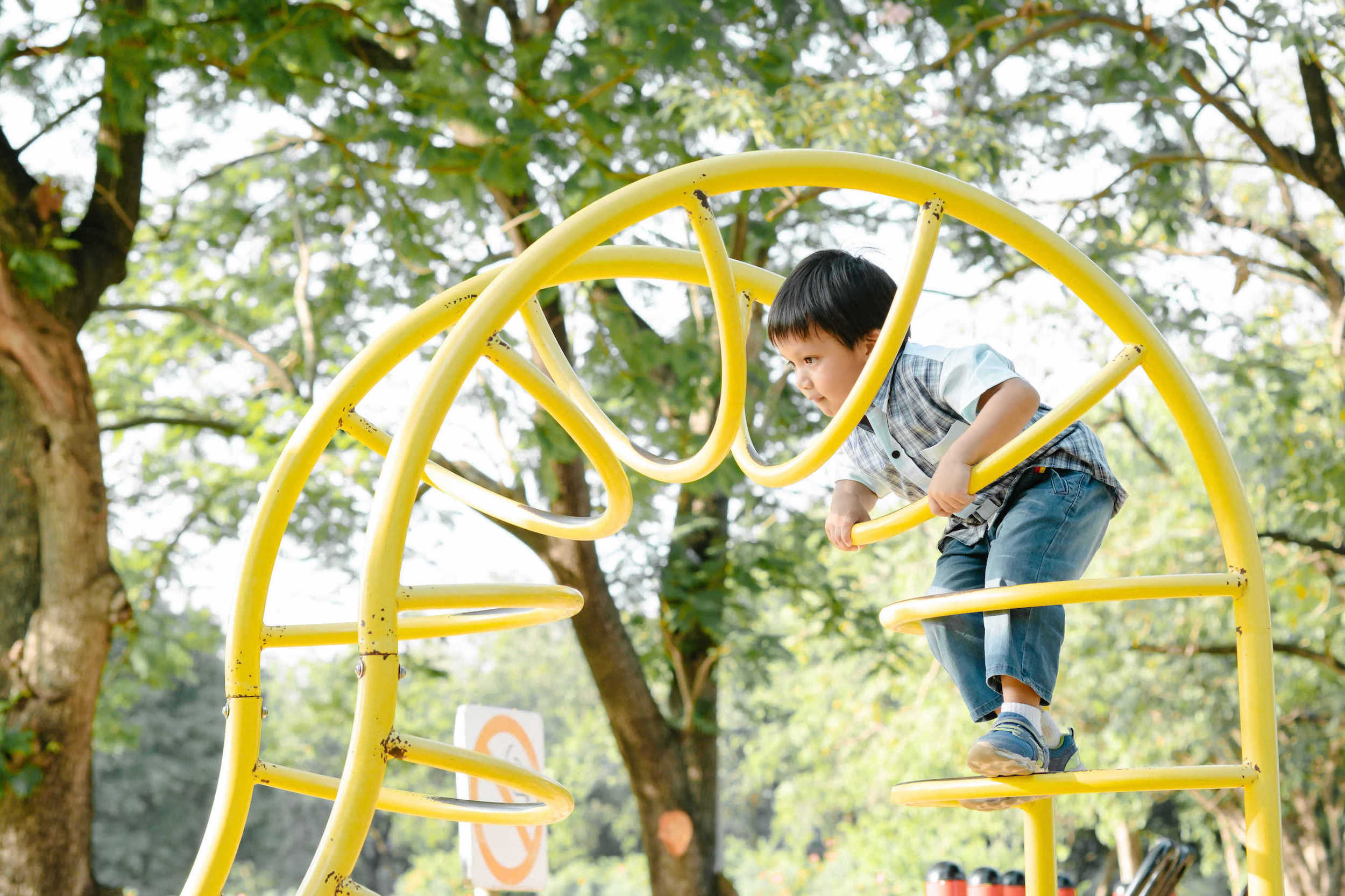14 Easy Ways to Promote Your Child’s Development

Here are some simple things you can do to optimise your little one’s cognitive flexibility and physical development between the ages of one and three years.
WHAT YOU CAN DO FOR YOUR CHILD’S COGNITIVE FLEXIBILITY
Developing your child’s cognitive flexibility enables them to let go of old learnings and embrace new ways of approaching things. Their mind will be able to change gears quickly, and move from one task and topic to another with ease.
Here are some simple activities that you can do with your child to nurture their cognitive flexibility:
1
You: Teach your child how to logically ‘self-talk’ through a problem.
Your child: Learns how to independently solve problems instead of running to you.
2
You: Use your gaze and motions to draw attention to different objects around your child.
Your child: Follows your cues and uses toys from different sets (such as blocks, trains, tracks and dolls) that you provide one by one, to create a play scene.
3
You: Change the rules of a familiar game.
Your child: Learns how to gracefully adapt to new situations, and continues to have fun despite the change in mechanics.
4
You: Read a variety of books.
Your child: Explores words with the same letter combinations but different pronunciations (such as ‘tough’ and ‘through’), thus developing a curiosity for language.
5
You: Tell jokes to your child.
Your child: Begins to understand how one phrase or sentence can have different meanings depending on nuances of tone and context, starts to tell jokes to family and friends and develops an all-important sense of humour.
6
You: Mix up your routine.
Your child: Accepts variety and learns to cope with unexpected events.
7
You: Play ‘What’s this?’, a guessing game with everyday items.
Your child: Finds many uses for a single thing, such as using a placemat for a magic carpet, thereby developing resourcefulness and creativity.
8
You: Encourage your child even when they make a mistake.
Your child: Tries new challenges with self-confidence and without fear of failure.
9
You: Encourage role-playing or make-believe.
Your child: Acts out real-life situations such as being a fireman or a garbage collector, honing their ability to see things from other people’s perspectives.
10
You: Be a role model by attempting challenging tasks with confidence.
Your child: Observes you and mimics your actions.
WHAT YOU CAN DO FOR YOUR CHILD’S PHYSICAL DEVELOPMENT
While your little one is absorbing knowledge and language like a sponge, they are also bursting with physical energy. To boost the development of their motor skills, take your toddler outdoors and encourage them to run, skip, jump and explore the joy of movement.
Here are some easy ways to develop your child’s physicality:
11
You: Do ‘fiddly’ things together that require a variety of large and small movements, such as flipping through books, picking up beads, folding paper and so on.
Your child: Develops fine and gross motor skills at the same time.
12
You: Play catch and football and encourage your child to play with both hands and feet.
Your child: Pushes themselves to use their non-dominant hands and feet and develops their ‘weaker’ side.
13
You: When your child fails at a task, show them how to do it over and over again until they grasp it.
Your child: Will learn quickly – practice makes perfect!
14
You: Provide a safe ‘playground’ for your child – in your backyard, at a park or public playground, and play physical games together, such as catch, playing on swings and slides, and so on.
Your child: Your child will grow stronger, and so will the bond between parent and child.
Sources
The Role of Pretend Play in Children’s Cognitive Development. Retrieved 8 Oct 2017 from http://ecrp.uiuc.edu/v4n1/bergen.html
Facilitating Motor Skill Development in Young Children. Retrieved 8 Oct 2017 from https://illinois.edu/blog/files/6039/140057/81762.pdf
Article courtesy of Wyeth Nutrition
This article is taken from our My Alvernia Magazine Issue #42/43. Click here to read the issue on our website or on Magzter.



